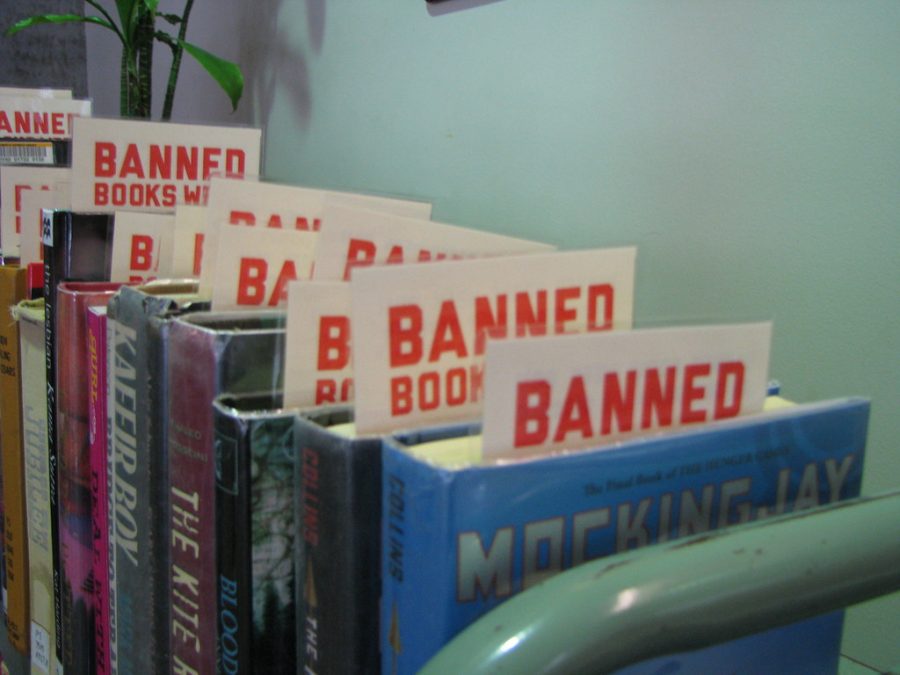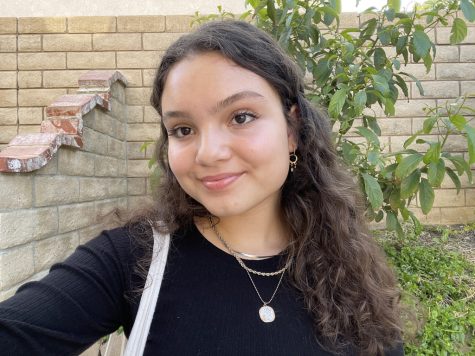Book Bans Sweep the Nation and Affect Hart District Schools
February 10, 2023
Recently, politics has plagued the motives of book bans, sparking conservative groups that permeate the local, state, and national levels. These groups, who claim to focus on “protecting parental rights,” have shifted their mission to suppress the expansion of ideas and characters they deem unfit for a school community.
Moms of Liberty, a Florida-based parental rights group that has over 200 chapters nationwide, outlined they are protecting the innocence of school children by assessing school libraries and classroom reading lists.
“Gender identity has no place being taught in schools,” said Tiffany Justice, founder of the organization. She and others work to restrict materials that involve sexual acts and deal with LGBTQ+ identity.
From July 2021 to June 2022, PEN America recorded 2,532 instances of book bans, affecting 1,648 unique book titles. In addition to banning books containing LGBTQ+ representation, book bans disproportionately target people of color. 40% of those titles contained protagonists or prominent secondary characters of color, and 21% directly addressed race or racism.
The push for reading censorship has manifested into legal legislation as well.
In 2021, politicians in Idaho pushed to ban critical race theory in the classroom, fueled by certain parental rights groups, including Moms of Liberty. On March 28, 2022, Governor Ron DeSantis signed the “Don’t Say Gay” bill, forbidding Florida teachers from keeping books featuring non-hetero-conforming content in their classroom libraries.
The Hart Union School District has directly experienced conflict with book bans in the libraries and classrooms.
On Sept. 15, 2022, the Hart High School committee agreed to remove This Book is Gay from Hart High’s library after receiving a level one complaint about the inappropriateness of the book.
“There is a difference between forcing a student to read something in a classroom that makes them uncomfortable, that doesn’t coincide with their personal beliefs,” said Sarah Delawder, former CHS Vice Principal, in an interview with The Signal. “But what parents don’t have the right to do, and what schools, I believe, don’t have the right to do is take voluntary access away from kids to young adult books that are written for a teenage audience that is reflective of the students who attend that school.”
Castaic High School’s librarian, Lori Hermelin, has been in the loop with the District’s book-banning conflicts.
“There has been a raised awareness [of book challenges], but it hasn’t gotten to the point of formal challenges,” she said.
District-wide, it’s quite easy to submit a complaint. A parent can contact a librarian directly or connect with the school’s administration. A formal challenge, however, requires parents to fill out paperwork after reading the book in its entirety.
“They can’t cherrypick out problematic language or passages,” added Hermelin, “You’d have to look at the book as a whole or look at the material as a whole, and then you’re judging the material on its merits as a whole.“
The Hart District has a strict Collection Development Policy, which ensures all books on their shelves not only support the high school curriculum but provide the students with a source of leisure reading. Since schools cannot guarantee that every student has access to the public library, it is their responsibility to provide each student with a diverse range of books at their own school. For this reason, there may be books that parents feel do not align with their values and practices.
“I welcome talking to families about the books their children have access to, but I really want them to be reflective of the fact that they should only be speaking for their child, and that access should be maintained for all students since the library is where kids can explore,” added Hermelin.
The ban of This Book is Gay was a blunt suppression of access to leisure reading. Not only did it limit the freedom of students, but it made a statement against students who relate to the book.
Sweeping book bans are detrimental to both students and teachers. By violating the first amendment, private individuals, government officials, and pro-censorship organizations are perpetuating a narrow worldview by stripping classroom shelves of diversity. No longer can students who identify with those characters see themselves represented.
“It’s kind of bizarre and somewhat disheartening that people are only trying to represent white, heterosexual people,” said Lindsey Nguegang, a junior at CHS, “especially as a Black woman, it feels as if who I am is gradually being more and more suppressed. And not being able to see that kind of representation can make you feel ignored, and, in a way, not accepted by society.”
Students are the primary victims of book banning. In the classroom, students are able to explore cultures outside of their own, especially through the English reading curriculum. By compromising the stability of classroom reading lists, students, especially from marginalized communities and minority backgrounds, are losing the cathartic experience they already lack outside of the classroom.
“I think that censoring those books is silencing the voices that these groups have been fighting for so long to be heard,” said Isabel Vasquez, junior. Book bans symbolize many steps backward for students of marginalized backgrounds, and are fostering a more narrow-minded youth.
“Some of the books that are most challenged are these books that do provide this broader world view so it’s a shame to skim them off in an environment where you might be able to promote challenging topics,” said Hermelin. Book bans are exacerbating the lack of diversity in high school reading lists and stripping classrooms of representation.




